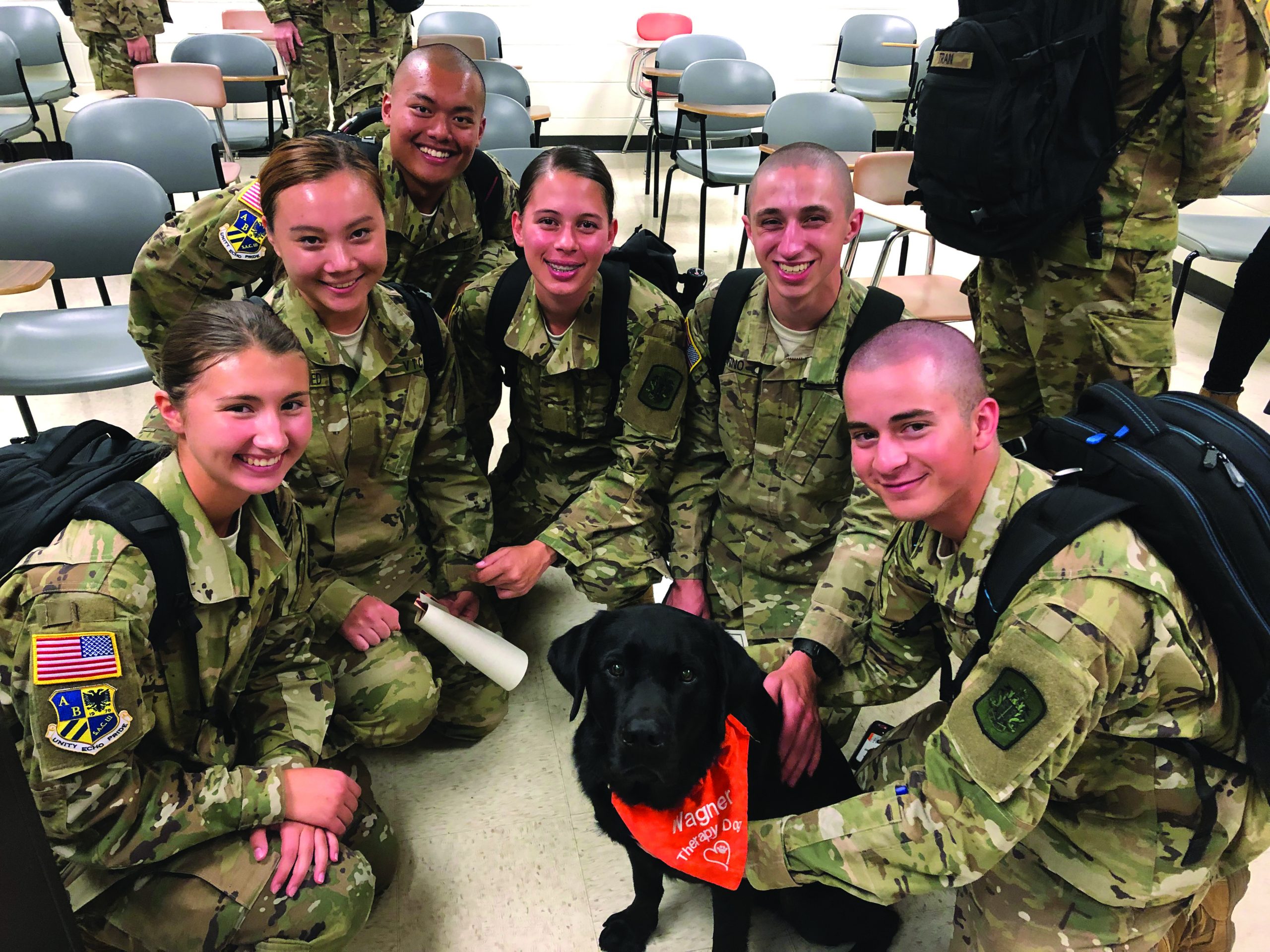By Mary Schwager
Lorraine Reynolds wants to make sure no other dog owner goes through the heartbreak and suffering that she and her Lab, Titas, experienced.
It all started when Titas had some accidents in the house. Reynolds figured it was a bladder infection and ran her seven-year-old dog to the vet’s office. They took some samples and said they’d be in touch with the results.

Soon after the Boston resident got a call she will never forget. “The vet’s office said, ‘You have a very sick dog. You need to get him to the emergency room now,'” Reynolds told Just Labs.
She raced Titas to the ER where vets gave her grim news: he most likely had Leptospirosis.
Leptospirosis, also known as Lepto, is a potentially deadly disease caused by Leptospira bacteria. It’s usually found in water and soil. Reynolds racked her brain trying to figure out where Titas could have picked it up. “I lived in the city. We went to the dog park every day,” she said. “He was a typical Lab, he loved to jump in puddles.”
Titas was hospitalized on and off for a week. “He was so sick,” Reynolds said. “His liver and kidney values were all out of whack. Then he stopped eating. You could tell he had given up.”
With the vet’s guidance Reynolds finally had to let Titas go so he didn’t suffer anymore. Further tests confirmed he did have Leptospirosis.
“It was awful, it was just awful,” Reynolds said.

Experts tell us Lepto isn’t always a death sentence, and it’s actually preventable.
“Some dogs may not show any signs, but sometimes they have a high fever, muscle tremors, dehydration, and they’re jaundiced because it can cause kidney failure and liver damage,” Veterinarian John Howe, president of the American Veterinary Medical Association, told Just Labs.
The bacteria is spread through the urine of infected animals, and it can occur almost anywhere in the country.
“Dogs can get it from a puddle or damp ground. Especially with excessive rainfall and fall storms.” Howe said. “Any place a raccoon, or another animal that carried it, goes. They walk through someone’s yard, urinate and infect the soil. Then the dog walks over, sticks their nose in it, their mucous membrane, and they just got exposed.”
The good news is there’s a vaccination to help prevent Lepto. Howe recommends all dogs get the vaccine, especially Labs since the breed typically loves being outside and in the water.
But some owners think if their dogs aren’t puddle jumpers or spend most of the time in their backyard, they don’t need to the vaccine. Howe said that’s a misconception. “I’ve seen unvaccinated house dogs, poodles, and chihuahuas get it,” he said.
Another reason to get your dog vaccinated: Lepto is zoonotic. It can also infect people.
“You should be very concerned. You can get it from your dog if you’re exposed to their urine or any bodily fluid,” Howe said. “If your dog is vaccinated you should not get it from your dog, and your dog should be safe. There are a lot of different strains of Lepto. The good vaccinations usually cover it.”
Reynolds said she didn’t even know there was a Lepto vaccination; her vet never offered or discussed it.
Instead, she ended up with an $11,000 vet bill trying to treat Titas for the illness and is still haunted that a simple vaccination could have prevented all their suffering.

“It’s such a devastating way to watch your dog die in front you,” Reynolds said. “No dog ever needs to die from Lepto.”
For more information on Leptospirosis, click here.
Mary Schwager, aka WatchdogMary, is a TV and print journalist now watchdogging for animals. She is honored to have won 16 Emmys, 8 Edward R. Murrows, and Associated Press awards for investigative reporting and writing. She loves tips, so send your story ideas to watchdogmary.com.







